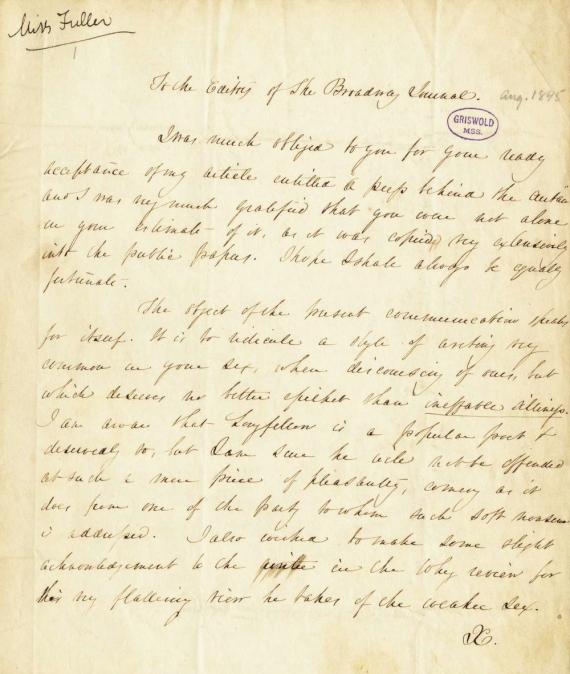SARAH MARGARET FULLER (1810–50) to the Editor of the Broadway Journal [E. A. POE], Letter, August 23, 1845
SARAH MARGARET FULLER (1810–50) to the Editor of the Broadway Journal [E. A. POE], Letter, August 23, 1845
To the Editor of The Broadway Journal.
I was much obliged to you for your ready acceptance of my article entitled “A peep behind the curtain” and I was very much gratified that you were not alone in your estimate of it, as it was copied very extensively into the public papers. I hope I shall always be equally fortunate.
The object of the present communication speaks for itself. It is to ridicule a style of writing very common in your sex, when discoursing of ours, but which deserves no better epithet than ineffable silliness. I am aware that Longfellow is a popular poet & deservedly so, but I am sure he will not be offended at such a mere piece of pleasantry, coming as it does from one of the party to whom such soft nonsense is addressed. I also wished to make some slight acknowledgment to the notice in the Whig review for this very flattering view he takes of the weaker sex.

